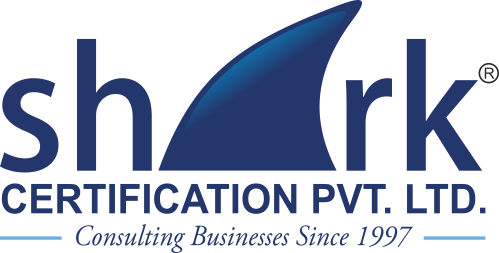Your Guide to Implementing a World-Class Food Safety Management System
Food safety is a critical priority for businesses involved in the production, processing, distribution, or handling of food products. The FSSC 22000 certification is an internationally recognized standard that provides a comprehensive framework for managing food safety risks. By implementing FSSC 22000, organizations can not only ensure compliance with global food safety regulations but also build trust with consumers and stakeholders.
In this blog, we’ll take you through the step-by-step process of achieving food safety excellence with FSSC 22000, highlighting its benefits, implementation strategies, and how it aligns with international food safety standards.
What is FSSC 22000?
The Food Safety System Certification (FSSC) 22000 is a globally recognized certification scheme for food safety management systems. Based on ISO standards, it incorporates industry-specific requirements and ensures that food safety practices are implemented, maintained, and continuously improved.
Key Features:
- Based on ISO 22000 and additional industry-specific standards.
- Recognized by the Global Food Safety Initiative (GFSI).
- Applicable to a wide range of organizations across the food supply chain.
Benefits of FSSC 22000 Certification
- Enhanced Food Safety: Ensures rigorous control of food safety hazards at all stages of the supply chain.
- Regulatory Compliance: Meets global and local regulatory requirements for food safety.
- Improved Consumer Trust: Builds credibility with customers and stakeholders through a commitment to safety and quality.
- Operational Efficiency: Streamlines processes, reduces waste, and enhances operational efficiency.
- Market Access: Opens doors to international markets by meeting GFSI-recognized standards.
- Continuous Improvement: Encourages ongoing assessment and improvement of food safety practices.
Steps to Implement FSSC 22000 in Your Organization
1. Understand the FSSC 22000 Requirements
Gain a clear understanding of the FSSC 22000 standard, its components, and its specific requirements for food safety management.
- Study the framework, including ISO 22000, sector-specific Pre-Requisite Programs (PRPs), and FSSC additional requirements.
- Identify how these requirements apply to your organization’s operations.
2. Conduct a Gap Analysis
Evaluate your current food safety management practices and compare them to the FSSC 22000 requirements.
- Identify gaps and areas for improvement.
- Create a roadmap to address deficiencies in your food safety system.
3. Establish a Food Safety Management System (FSMS)
Develop and document your FSMS in alignment with FSSC 22000.
- Define food safety policies and objectives.
- Identify critical control points (CCPs) and establish controls.
- Develop processes for monitoring, corrective actions, and verification.
4. Implement Pre-Requisite Programs (PRPs)
Implement PRPs tailored to your sector to address food safety hazards.
- Examples of PRPs include cleaning and sanitation, pest control, and personnel hygiene.
- Ensure PRPs are documented, implemented, and maintained.
5. Train Employees
Provide comprehensive training to employees to ensure they understand their roles in maintaining food safety.
- Conduct regular training sessions on FSSC 22000 principles and procedures.
- Promote a food safety culture within the organization.
6. Conduct Internal Audits
Perform internal audits to verify that the FSMS complies with FSSC 22000 requirements.
- Identify areas of non-conformance and implement corrective actions.
- Use audit findings to drive continuous improvement.
7. Engage a Certification Body
Select an accredited certification body to conduct an external audit of your FSMS.
- Prepare for the certification audit by addressing any remaining gaps.
- Undergo the Stage 1 (document review) and Stage 2 (on-site audit) assessments.
8. Achieve Certification
Upon successful completion of the external audit, your organization will receive FSSC 22000 certification.
- Celebrate this achievement and communicate it to stakeholders.
- Display the certification as proof of your commitment to food safety.
How FSSC 22000 Ensures Compliance with International Standards
FSSC 22000 aligns with international food safety regulations and standards, including:
- Codex Alimentarius: A collection of internationally recognized standards for food safety and hygiene.
- ISO 22000: A globally recognized standard for food safety management systems.
- HACCP Principles: Ensures hazard analysis and critical control points are effectively implemented.
By adopting FSSC 22000, organizations demonstrate their commitment to complying with international standards and ensuring the safety of their food products.
Tips for Successful FSSC 22000 Implementation
- Engage Leadership: Ensure top management actively supports food safety initiatives.
- Involve All Employees: Foster a culture of food safety by involving employees at all levels.
- Leverage Technology: Use digital tools to monitor, document, and manage food safety processes.
- Focus on Continuous Improvement: Regularly review and improve your FSMS to stay ahead of emerging food safety challenges.
- Choose the Right Partner: Work with experienced consultants or certification bodies for expert guidance.
Achieving food safety excellence with FSSC 22000 is a strategic decision that benefits organizations across the food supply chain. From enhancing consumer trust to ensuring regulatory compliance, FSSC 22000 provides a robust framework for managing food safety risks.
Implementing the standard may seem complex, but with a clear understanding of the requirements and a step-by-step approach, organizations can achieve certification and reap its many benefits.
Ready to elevate your food safety standards? Begin your FSSC 22000 journey today to build a safer and more trustworthy food supply chain.


